
Angela and Manuel Norse
The Norses have included the ASPCA in their wills, as a beneficiary of their retirement and investment plans, and they also participate in the ASPCA’s Guardian monthly giving program.
In addition, Mr. and Mrs. Norse have arranged for the future care of their pets by naming Angela’s mother as a pet guardian in their estate plans.
Continue Reading Manuel and Angela’s story
Manuel and Angela’s pet family consists of three cats—Nikki, Bell and Amber—and two dogs, Sadie and Dantly. Dantly, a pit/Lab-mix, is named after the famous Utah Jazz and Detroit Pistons basketball star, and shares his namesake’s good looks. Six years ago, Dantly was found at a landfill and rescued by the Norses. Now, he and his pet siblings have full run of the Norse household and backyard, which includes two dog houses and a dog run encompassing much of their property. The ASPCA helps animals who cannot stand up for themselves, which is why the Norses are dedicated to the ASPCA’s mission. They are especially interested in the work the ASPCA does in disaster relief areas and spay/neuter services. By supporting spay/neuter specifically, they feel that they are addressing the key to ending the problem of pet homelessness.
The ASPCA is grateful for such dedicated and caring donors as Manuel and Angela Norse.

Florence Huey
ASPCA supporter Florence Huey has been an animal lover all her life and has had dogs in her home for as long as she can remember. Her dogs were always rescues, either given to her family by friends or saved by her mother, who often re-homed homeless dogs.
Florence remembers sleeping on the floor next to their first rescue dog, Queenie, to comfort her through the night.
Continue reading Florence's story
About 25 years ago, Florence visited the ASPCA Adoption center in Manhattan to look for a small dog for her mother. Florence had to make a quick decision that day, because the dog she fancied was scheduled to be featured in our mobile adoptions vehicle the following day and would surely find a home. She decided to adopt the dog, named Prissy, who wound up being with Florence’s mother for 14 wonderful years.
Florence recently had the opportunity to visit the newly renovated ASPCA Animal Hospital and Adoption Center.
“What impressed me so much about the Adoption Center was seeing how much is involved in preparing animals for adoption – medical evaluation and treatment, behavioral testing, rehabilitation, spay/neuter procedures and the team of people who feed, walk, clean kennels and change litter for every single animal,” Florence says.
Florence lives with her five-year-old Maltipoo, Roger, whom she fostered and later decided to adopt. As Florence prepares for her retirement in the next few years, she is keeping her eye out for an additional companion. She has also found the perfect financial way to support the animals she loves. A friend suggested she explore options for a charitable gift annuity, so Florence contacted the ASPCA. Our charitable gift annuity program is for donors over the age of 60 who wish to donate $10,000 or more in stocks or cash. The ASPCA makes payments to the donor for the donor’s lifetime and any remaining funds go to the ASPCA to support our lifesaving programs.
“It’s a great way to support an organization you feel passionate about, while getting a good return on your investment,” Florence says.
Florence is considering putting the ASPCA in her will in the future, but wanted to do something now, both for the ASPCA and for herself. A charitable gift annuity fulfilled both of her wishes.
Continue Reading Manuel and Angela’s story
Manuel and Angela’s pet family consists of three cats—Nikki, Bell and Amber—and two dogs, Sadie and Dantly. Dantly, a pit/Lab-mix, is named after the famous Utah Jazz and Detroit Pistons basketball star, and shares his namesake’s good looks. Six years ago, Dantly was found at a landfill and rescued by the Norses. Now, he and his pet siblings have full run of the Norse household and backyard, which includes two dog houses and a dog run encompassing much of their property. The ASPCA helps animals who cannot stand up for themselves, which is why the Norses are dedicated to the ASPCA’s mission. They are especially interested in the work the ASPCA does in disaster relief areas and spay/neuter services. By supporting spay/neuter specifically, they feel that they are addressing the key to ending the problem of pet homelessness.
The ASPCA is grateful for such dedicated and caring donors as Manuel and Angela Norse.
Continue reading Florence's story
About 25 years ago, Florence visited the ASPCA Adoption center in Manhattan to look for a small dog for her mother. Florence had to make a quick decision that day, because the dog she fancied was scheduled to be featured in our mobile adoptions vehicle the following day and would surely find a home. She decided to adopt the dog, named Prissy, who wound up being with Florence’s mother for 14 wonderful years.
Florence recently had the opportunity to visit the newly renovated ASPCA Animal Hospital and Adoption Center.
“What impressed me so much about the Adoption Center was seeing how much is involved in preparing animals for adoption – medical evaluation and treatment, behavioral testing, rehabilitation, spay/neuter procedures and the team of people who feed, walk, clean kennels and change litter for every single animal,” Florence says.
Florence lives with her five-year-old Maltipoo, Roger, whom she fostered and later decided to adopt. As Florence prepares for her retirement in the next few years, she is keeping her eye out for an additional companion. She has also found the perfect financial way to support the animals she loves. A friend suggested she explore options for a charitable gift annuity, so Florence contacted the ASPCA. Our charitable gift annuity program is for donors over the age of 60 who wish to donate $10,000 or more in stocks or cash. The ASPCA makes payments to the donor for the donor’s lifetime and any remaining funds go to the ASPCA to support our lifesaving programs.
“It’s a great way to support an organization you feel passionate about, while getting a good return on your investment,” Florence says.
Florence is considering putting the ASPCA in her will in the future, but wanted to do something now, both for the ASPCA and for herself. A charitable gift annuity fulfilled both of her wishes.

Lesley Dolby
Lesley Dolby has lived all over the world, but one thing has remained constant: her love for animals.
Continue reading Lesley's story
Originally from England, Lesley moved to Canada as a young adult, then to Long Island, New York, in 1983, and since 2000 she and her husband have made their home in Orlando, Florida. With every move, Lesley traveled with her dogs, even bringing them to Spain a few times when she lived there. Lesley has always loved German Shepherds – so much that she has been a pet parent only to this breed. “My dogs love to be right by my side. We don’t live in a large space, but even if we did, they would be right at my feet.” She feels that the breed is frequently misunderstood, and she is strongly opposed to breed discrimination, also known as breed-specific legislation or “BSL.”
BSL is a blanket term for laws that either regulate or ban certain dog breeds in an effort to decrease dog attacks on humans or other anlmals. However, there is no evidence that breed-specific laws make communities safer for people or pets. More than 700 U.S. cities have enacted breed-specific laws, but there is no convincing data to indicate that breed-specific legislation has succeeded anywhere to date. The ASPCA works with local governments and our advocates to raise awareness about the negative consequences of BSL and propose alternative solutions. Working together, we’ve seen success in repealing breed-specific legislation in Washington, Ohio and Missouri. Lesley gives to several animal welfare organizations but has a special place in her heart for the ASPCA. Since she first became interested in our work in 1999, her commitment to our mission has only grown. For the past 19 years, Lesley and her husband have owned a real estate brokerage, and with every sale she donates a part of her commission to the ASPCA. ln 2008, she became a monthly Guardian member and has since established a charitable gift annuity. When she included the ASPCA as a beneficiary in her will in 2011, she joined the Legacy Society, which honors and thanks people who include us in their estate plans.
Join Lesley in making a commitment to animals a part or your life and legacy!

Lynn Provias
As a dedicated animal lover, member of the ASPCA’s Legacy Society and proud monthly supporter of the ASPCA, Lynn Provias understands the incredible joy and support that human and animal companions provide for each other.
Continue reading Lynn's story
That’s why Lynn thought her neighbor, Andy, whose wife and dog passed away several years ago, would benefit from the company of a canine friend. She took Andy on a trip with her to their local animal shelter where they met Millie, a 12-year-old dog who had a heart condition just like Andy.
“It was love at first sight!” Lynn says, “Millie was perfect for Andy.” The two instantly formed a bond, so Andy took Millie home where she would be loved and spoiled. Now, they do everything together. They take their heart pills together at the same time every morning and are inseparable for the rest of the day.”
Andy and Millie’s experience has inspired Lynn to share their story and raise awareness for the importance of adopting senior pets. Older animals are often overlooked for younger cats and dogs, but they are just as loving and come with some wonderful perks! They do not typically require the same amount of training as younger pets, and their adopters can have a more accurate idea of their personality type, full-grown size and special needs before they adopt.
Lynn sees that Millie gives Andy purpose and someone to love. When she visits them, Millie can usually be found on Andy’s lap, watching television with her pet parent. Lynn says, “Millie always comes over and gently puts her head in my lap and looks up at me with those big brown eyes. I pat her on the head and say, “You’re welcome.”
If you are thinking about adopting a pet, consider rescuing an older animal! You will not only save a life, but gain a companion with a lifetime of love to share.
We are grateful to Lynn for her support through not only our ASPCA Guardian and Legacy programs, but also as an ambassador for animal welfare in her community.
Continue reading Lesley's story
Originally from England, Lesley moved to Canada as a young adult, then to Long Island, New York, in 1983, and since 2000 she and her husband have made their home in Orlando, Florida. With every move, Lesley traveled with her dogs, even bringing them to Spain a few times when she lived there. Lesley has always loved German Shepherds – so much that she has been a pet parent only to this breed. “My dogs love to be right by my side. We don’t live in a large space, but even if we did, they would be right at my feet.” She feels that the breed is frequently misunderstood, and she is strongly opposed to breed discrimination, also known as breed-specific legislation or “BSL.”
BSL is a blanket term for laws that either regulate or ban certain dog breeds in an effort to decrease dog attacks on humans or other anlmals. However, there is no evidence that breed-specific laws make communities safer for people or pets. More than 700 U.S. cities have enacted breed-specific laws, but there is no convincing data to indicate that breed-specific legislation has succeeded anywhere to date. The ASPCA works with local governments and our advocates to raise awareness about the negative consequences of BSL and propose alternative solutions. Working together, we’ve seen success in repealing breed-specific legislation in Washington, Ohio and Missouri. Lesley gives to several animal welfare organizations but has a special place in her heart for the ASPCA. Since she first became interested in our work in 1999, her commitment to our mission has only grown. For the past 19 years, Lesley and her husband have owned a real estate brokerage, and with every sale she donates a part of her commission to the ASPCA. ln 2008, she became a monthly Guardian member and has since established a charitable gift annuity. When she included the ASPCA as a beneficiary in her will in 2011, she joined the Legacy Society, which honors and thanks people who include us in their estate plans.
Join Lesley in making a commitment to animals a part or your life and legacy!
Continue reading Lynn's story
That’s why Lynn thought her neighbor, Andy, whose wife and dog passed away several years ago, would benefit from the company of a canine friend. She took Andy on a trip with her to their local animal shelter where they met Millie, a 12-year-old dog who had a heart condition just like Andy.
“It was love at first sight!” Lynn says, “Millie was perfect for Andy.” The two instantly formed a bond, so Andy took Millie home where she would be loved and spoiled. Now, they do everything together. They take their heart pills together at the same time every morning and are inseparable for the rest of the day.”
Andy and Millie’s experience has inspired Lynn to share their story and raise awareness for the importance of adopting senior pets. Older animals are often overlooked for younger cats and dogs, but they are just as loving and come with some wonderful perks! They do not typically require the same amount of training as younger pets, and their adopters can have a more accurate idea of their personality type, full-grown size and special needs before they adopt.
Lynn sees that Millie gives Andy purpose and someone to love. When she visits them, Millie can usually be found on Andy’s lap, watching television with her pet parent. Lynn says, “Millie always comes over and gently puts her head in my lap and looks up at me with those big brown eyes. I pat her on the head and say, “You’re welcome.”
If you are thinking about adopting a pet, consider rescuing an older animal! You will not only save a life, but gain a companion with a lifetime of love to share.
We are grateful to Lynn for her support through not only our ASPCA Guardian and Legacy programs, but also as an ambassador for animal welfare in her community.

Rosalind Schaefer
Rosalind Schaefer is a lifelong animal lover and equestrienne, as well as a longtime ASPCA donor. When she expressed a desire to fund a project that would specifically help horses, we were thrilled to work with her.
Continue reading Rosalind's story
With Mrs. Schaefer’s generous support, the ASPCA Equine Fund was able to create a new, day-long workshop program that helps equine rescue organizations improve their own operations and build valuable relationships with others in the field.
The Rosalind and Franklyn Schaefer Family Equine Workshop is aimed at helping equine rescue and sanctuary operators improve their skill sets in four critical areas: best practices, coalition-building, board development and fundraising.
Representatives of nearly 40 organizations hailing from 10 states participated in the first two workshops in the series. The ASPCA hopes to impact more than 100 additional organizations each year and continue to build a stronger network of equine professionals.
We are sincerely grateful to the Schaefer family for this wonderful opportunity to offer such a valuable professional development program to the equine welfare community.
Read more about the wildfire response
In January 2025, the ASPCA disaster response team was on the ground in Southern California at the request of Pasadena Humane, Los Angeles County, and Los Angeles City officials assisting nearly 4,000 animals in the aftermath of the devastating Eaton and Palisades Fires.
Alongside local and national partners including the International Fund for Animal Welfare (IFAW), American Humane Society (AHS), San Diego Humane Society, the San Diego Department of Animal Services, and the North Valley Animal Disaster Group, we assisted with immediate animal needs through search and rescue, feeding-in-place operations and sheltering support. The ASPCA’s disaster response team responded to more than 520 service calls from community members requiring assistance with lost and found pets, emergency veterinary care, pet supply needs and more.
"Providing vulnerable animals, pet owners, and shelters with lifesaving assistance in the aftermath of the devastating wildfires in Los Angeles has been a collaborative effort, and the ASPCA is dedicated to working with our local and national partners to continue providing critical rescue, care, and shelter support for as many animals as we can,” said Matt Bershadker, ASPCA President and CEO. “The ASPCA immediately mobilized to assist ongoing relief efforts, and we are immensely grateful to work alongside the many disaster response partners who have stepped up to ensure the safety of displaced animals and help impacted families care for their beloved pets.”
Ongoing Response Efforts
Highly trained ASPCA disaster response personnel assisted Pasadena Humane with daily shelter support and field operations including animal search and rescue in collaboration with Los Angeles County Animal Care & Control. We also supported animal reunification efforts, providing disaster management guidance and assisting with pet supply distribution and other critical aid. These efforts have supported needs stemming from the Eaton Fire, which decimated areas of Pasadena, Altadena and surrounding communities after setting ablaze the evening of January 7.
At the request of Los Angeles Animal Services (LAAS), the ASPCA has also facilitated animal search and rescue in areas devastated by the Palisades Fire in the Pacific Palisades neighborhood of the city. National Animal Rescue & Sheltering Coalition (NARSC) partners IFAW and American Humane Rescue, a program of AHS, are on the ground at the request of the ASPCA, supporting this vital work and assisting with planning and coordination, animal search and rescue, feed-in-place operations as well as pet reunifications in the field and at local shelters.
Through collaboration with LAAS and the office of Los Angeles Mayor Karen Bass, the ASPCA has helped enhance field rescue operations in impacted communities to maximize the number of animals rescued and reunited with their owners. In addition, our Los Angeles-based Community Medicine team provided LAAS with veterinary support to help local shelters prepare animals for adoption, foster, and relocation by assisting with vaccinations, health certifications, and spay/neuter.

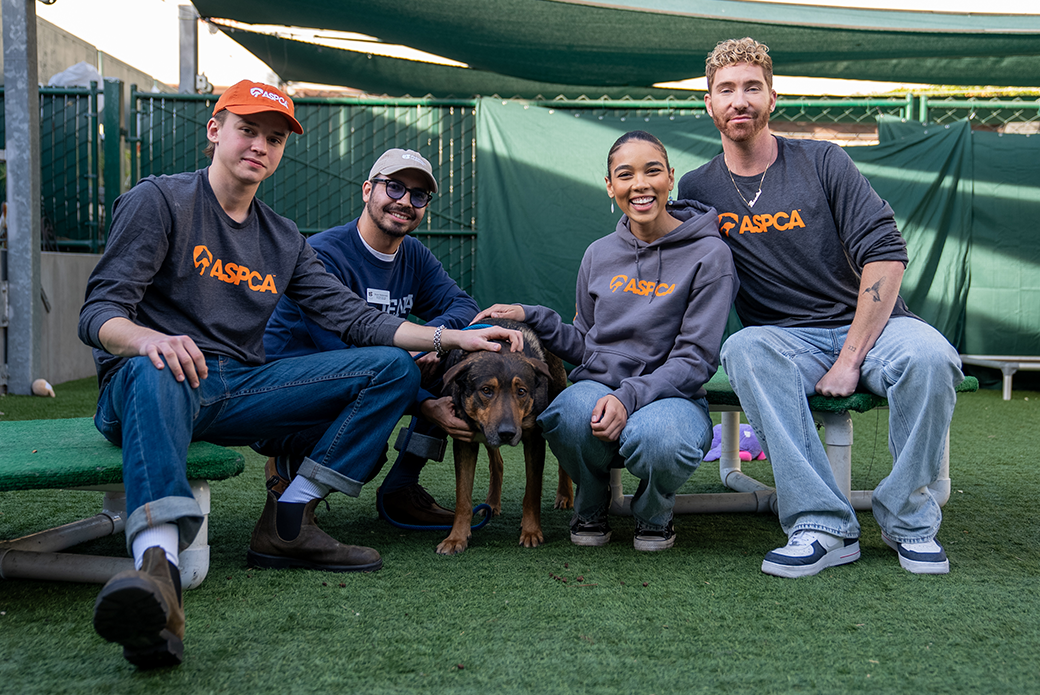
These ambassadors worked alongside Pasadena Humane staff and members of the ASPCA disaster response team, helping with animal socialization and enrichment. They also met pets who have been separated from their owners, including dogs, cats, a tortoise and a bearded dragon, among others, and promoted these pets on their social media channels in an effort to reunite them with their families.
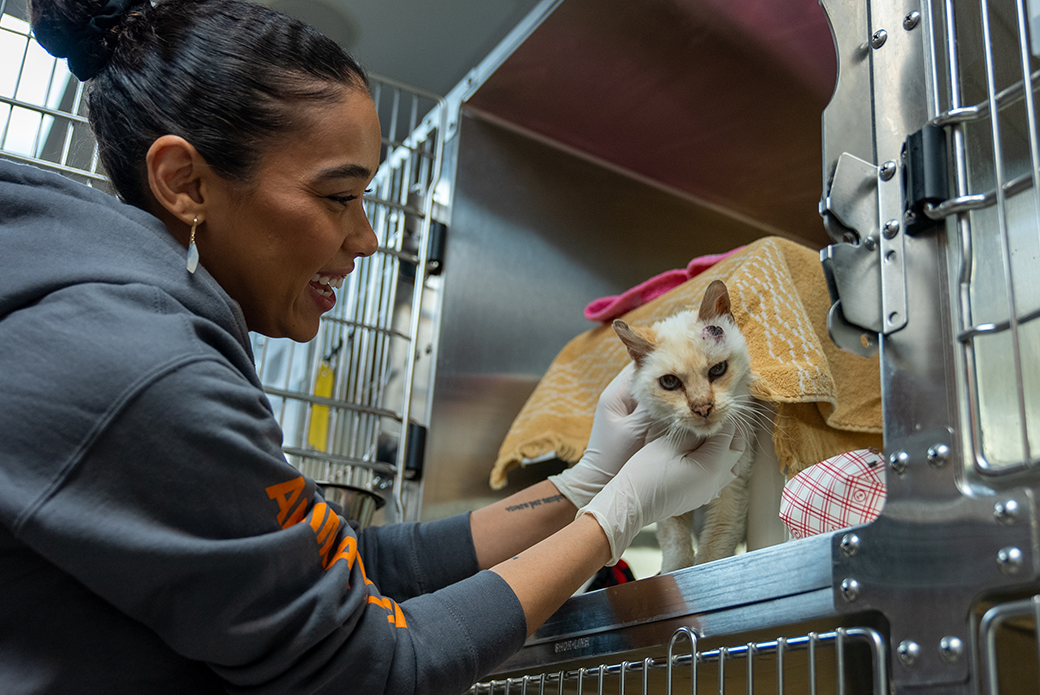 Actor Alexandra Shipp helps with daily enrichment and care at Pasadena Humane.
Actor Alexandra Shipp helps with daily enrichment and care at Pasadena Humane.
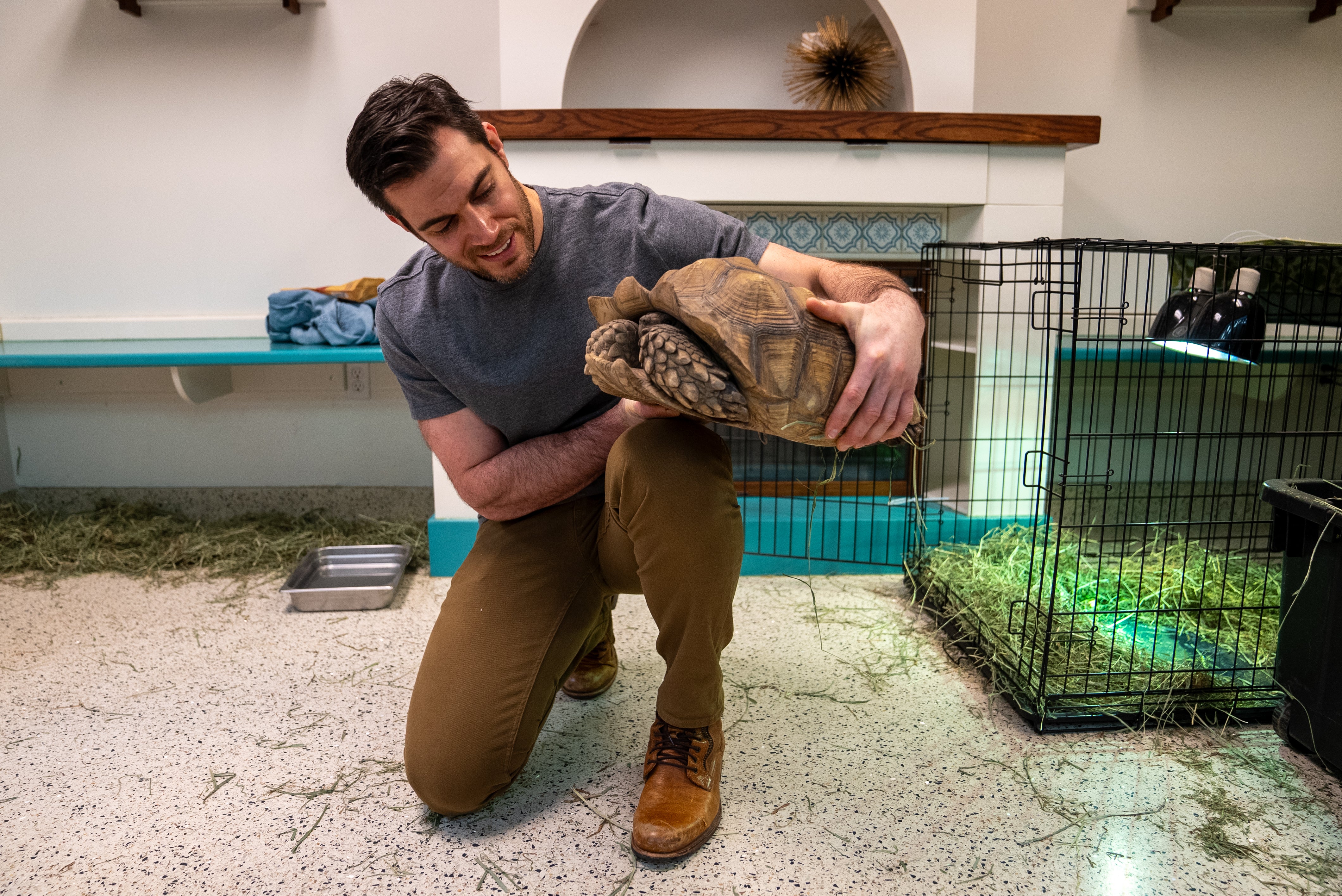 Television personality and exotic animal veterinarian, Dr. Evan Antin, poses with a rescued tortoise.
Television personality and exotic animal veterinarian, Dr. Evan Antin, poses with a rescued tortoise.
 Actor Maxwell Jenkins helps with daily care, holding a rescued cat at Pasadena Humane.
Actor Maxwell Jenkins helps with daily care, holding a rescued cat at Pasadena Humane.
 Actor Nathan Lane gives treats and enrichment to rescued animals.
Actor Nathan Lane gives treats and enrichment to rescued animals.
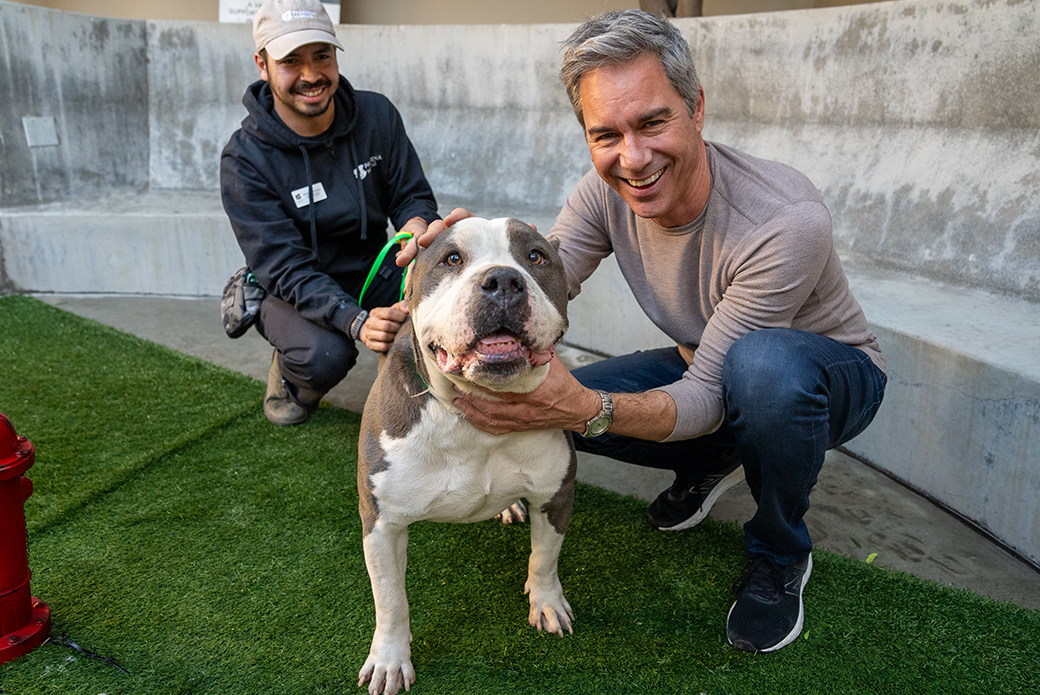 Actor and longtime ASPCA supporter, Eric McCormack, poses with a rescued pup.
Actor and longtime ASPCA supporter, Eric McCormack, poses with a rescued pup.
Our disaster response team remains on the ground in Southern California, continuing our efforts to provide subject matter expertise, operational assistance, supply distribution and critical support for impacted communities.
January 23, 2025
UPDATE: We are grateful to Independence Pet Holdings (IPH) for their recent donation of $100,000 to the ASPCA California Wildfire Response & Preparedness Fund to provide critical funding to animal welfare organizations responding to the devastating wildfires. IPH understands the deep bond between pets and their families, and we recognize their commitment to safeguarding pets and ensuring their well-being during times of crisis.
The ASPCA’s $5 million California Wildfire Response & Preparedness Fund will provide animal welfare organizations in the area critical resources to continue protecting and supporting animals in their communities and address longer-term impacts on their organizations, as well as help develop resources and infrastructures to protect from future disasters. Applications may be submitted now through February 17, for disaster response funding and through June 30 for capacity-building funding. For more information about the eligibility requirements and to apply, please visit ASPCApro.org/wildfiregrants.
January 17, 2025
UPDATE: Our field response team in Southern California continues to support Pasadena Humane and LA County with field operations and disaster management guidance. We are also working to support pet supply distribution and other critical efforts including reuniting people with displaced pets.
For resources regarding lost/found pets in the affected areas, please use and share this flyer.

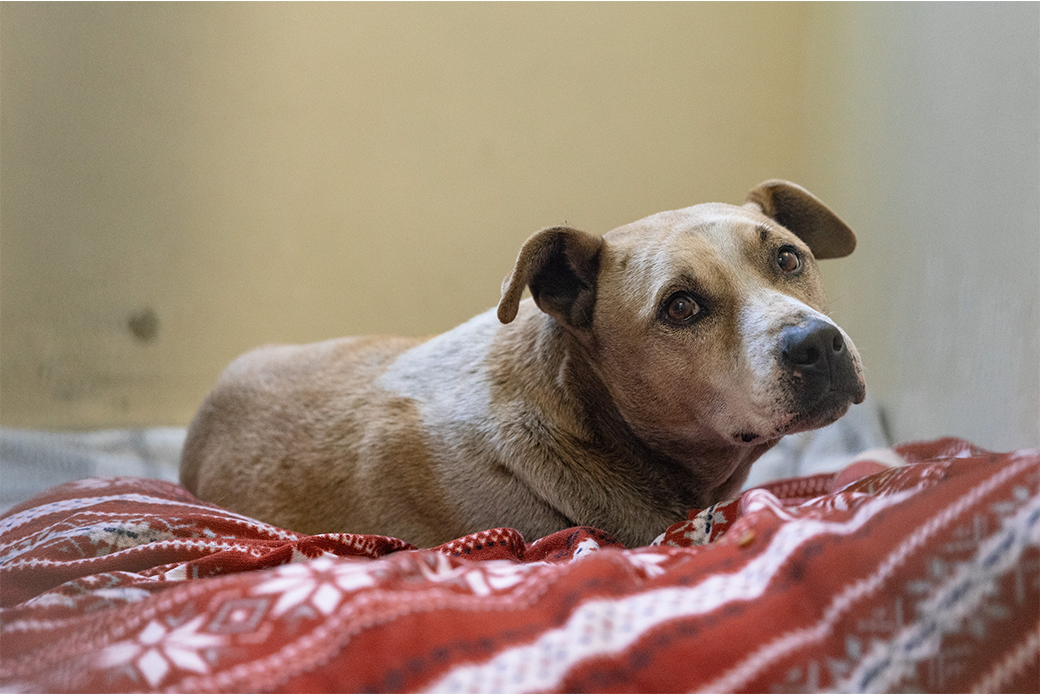

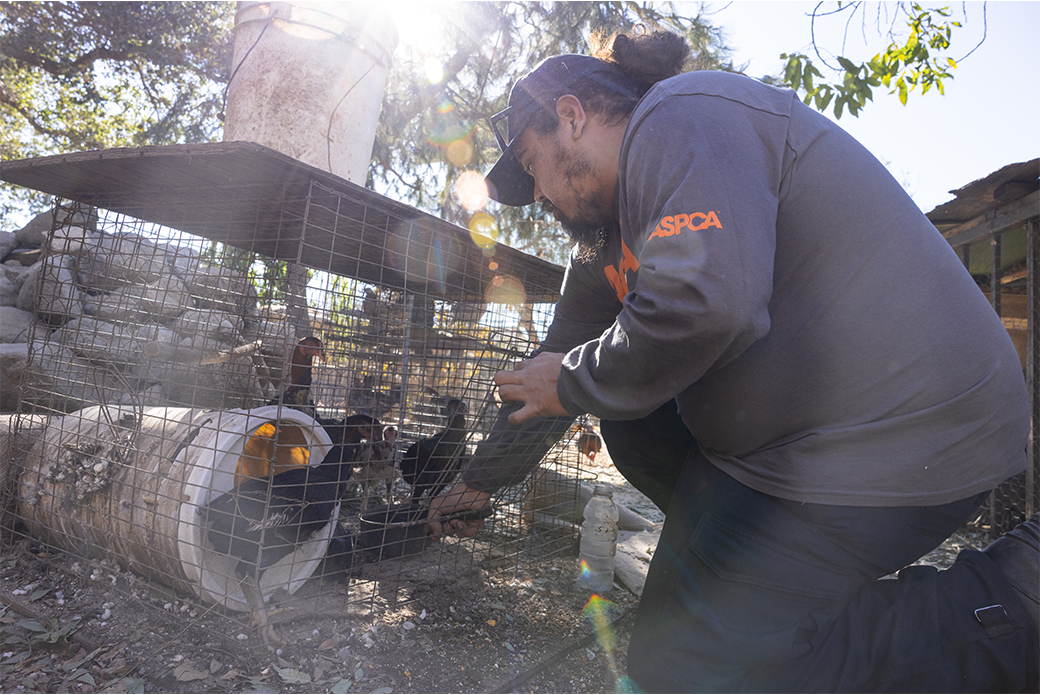
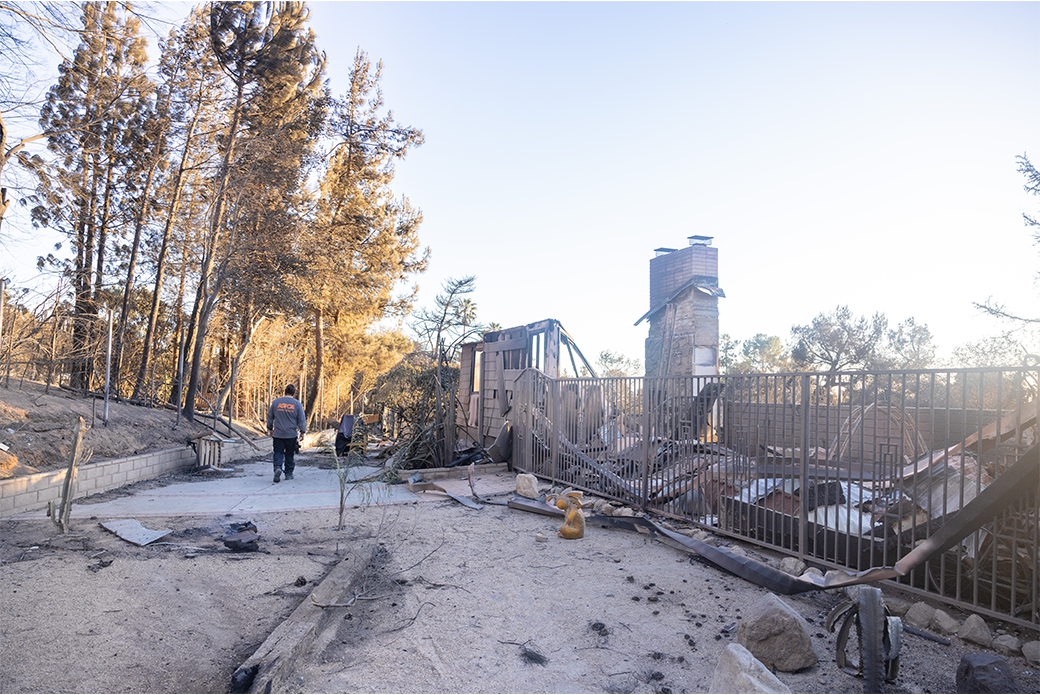

January 15, 2025
UPDATE: As our response in Southern California is ongoing, our field responders are working on dozens of service requests daily, including reuniting several cats and chickens with their owners, helping with the removal of animals (including one gecko), providing food and supplies to those in need, and setting up feeding stations for community cats in varied locations.
We will provide additional updates from the field as this critical work continues this week.

January 14, 2025
UPDATE: As disaster response continues to the devastating wildfires burning across Southern California, we have announced a $5 million California Wildfire Response & Preparedness Fund to provide critical funding to animal welfare organizations responding to animal needs due to the wildfires. Funding is also available to prepare for and build capacity to defend against future fires and other disasters.
“These wildfires are devastating to people and animals, and we are collaborating with our partners in California to provide protections for the health and safety of owned and shelter animals, but the wreckage is vast and the rebuild will require tremendous resources and effort,” said Tim Rickey, vice president of ASPCA National Field Response. “Our $5 million relief fund will provide animal welfare organizations in the area critical resources to continue protecting and supporting animals in their communities and address longer-term impacts on their organizations, as well as help develop resources and infrastructures to protect from future disasters.”
The funds can be applied to:
- Disaster response costs incurred in supporting owned and shelter animals by animal welfare organizations currently supporting disaster response in Los Angeles. These include costs related to field operations, emergency sheltering or medical care for impacted animals, animal evacuation and relocation, or animal supply and food distribution.
- Capacity-building for disaster preparedness to help communities in California protect and support animals in future fires and other disasters.
Applications may be submitted now through February 17, for disaster response funding and through June 30 for capacity-building funding. For more information about the eligibility requirements and to apply, please visit ASPCApro.org/wildfiregrants.
The ASPCA’s California Wildfire Response & Preparedness Fund will also provide funding for disaster recovery costs for shelters with direct fire damage and, as needs become more apparent, longer-term operating support for key organizations in severely impacted communities that experience significant fundraising shortfalls and/or declines in adoptions.


In addition to the grant funding, our disaster response team is currently still on the ground, at the request of Pasadena Humane, providing animal search and rescue, subject matter expertise, operational assistance and critical support for impacted communities. The ASPCA’s Los Angeles-based Community Medicine team is providing veterinary support to help local shelters prepare animals for adoption, foster, and relocation by assisting with vaccinations, health certifications and spay/neuter. We are also arranging for the safe transport of homeless animals in Los Angeles to partner shelters out of the disaster zone to make room for other animals in need.
During this time, we are continuing to collaborate with animal welfare organizations and emergency management agencies across the impacted areas to determine where it can support the most critical needs.
January 10, 2025
In response to the devastating wildfires burning across Southern California, the ASPCA Disaster Response team is currently on the ground, at the request of Pasadena Humane, to provide subject matter expertise and critical support for impacted communities. In addition, we are ensuring the safety of our own staff based in Southern California, including those who oversee the ASPCA Kitten Foster Program in Los Angeles. Earlier this week, more than 30 cats and kittens in the care of the ASPCA near the disaster zone were relocated as a precautionary measure and are now safely in foster care in currently unaffected areas.
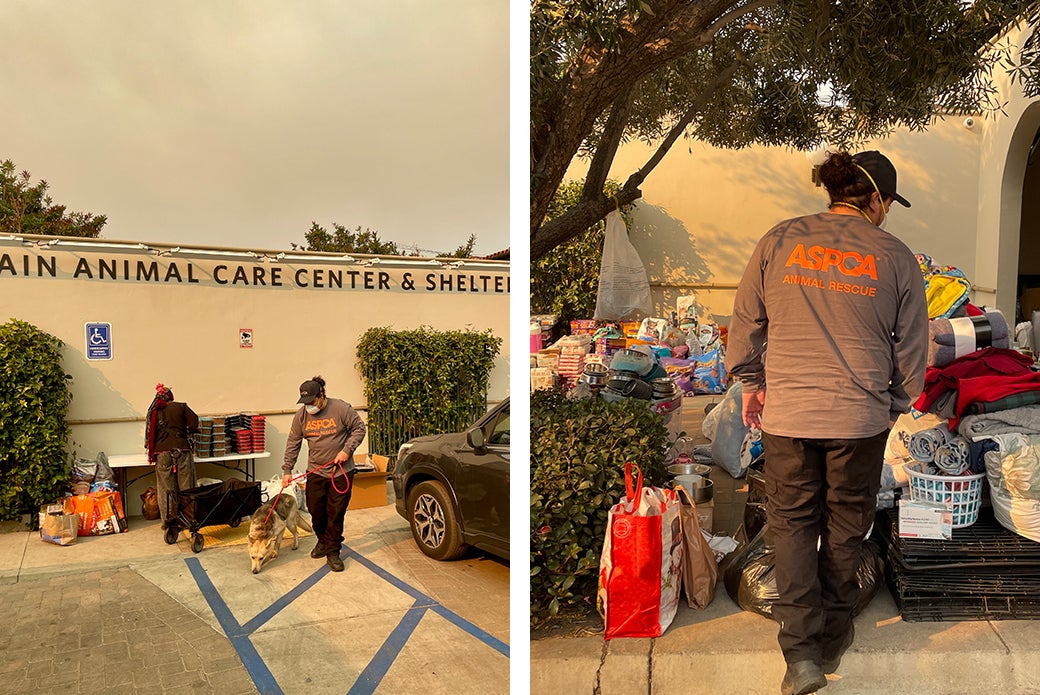
"Wildfires are incredibly destructive, and the current series of unprecedented fires burning throughout Los Angeles are no exception, severely impacting people and their pets," said Susan Anderson, director of ASPCA Disaster Response. "The ASPCA is dedicated to collaborating closely with our partners in California, including organizations directly affected by the fires and agencies outside the disaster zone supporting our relief efforts, to safeguard the health and safety of displaced pets and shelter animals."
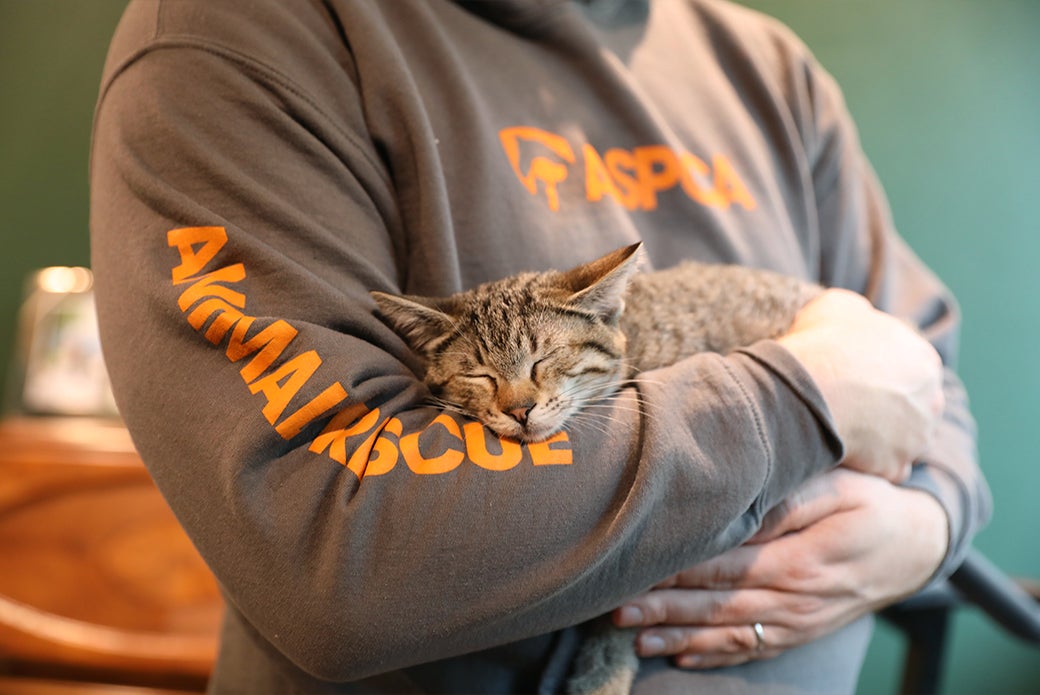

We are continuing to communicate with animal welfare organizations and emergency management agencies across the impacted areas to assess where we can continue to best support the most critical needs. We are grateful to our partners outside of the disaster zone, including the San Diego Department of Animal Services and the San Diego Humane Society, for their assistance with these urgent response efforts.
While our response in California continues, you can find lifesaving tips for pet owners who may be preparing to potentially evacuate from their homes at aspca.org/disasterprep. For those in need of immediate assistance with an animal, please contact the local agency within your community that handles animal disaster response, which may be your emergency management agency, law enforcement, animal services or local animal shelter.
For those interested in supporting animal response efforts, consider donating to or volunteering with one of the many local animal welfare organizations in Southern California – including Pasadena Humane – that are working tirelessly to keep California’s animals and pet owners safe. Some animal welfare organizations outside of the disaster zone, such as San Diego Humane Society, are also taking in displaced homeless animals and may be looking for adopters and foster caregivers. You can directly support the ASPCA’s lifesaving efforts by visiting aspca.org/lawildfire.
Need assistance? We're here to help!

Nicole Nahas
Senior Director, Planned Giving
ASPCA®
212-876-7700 ext. 4505
giftplanning@aspca.org
